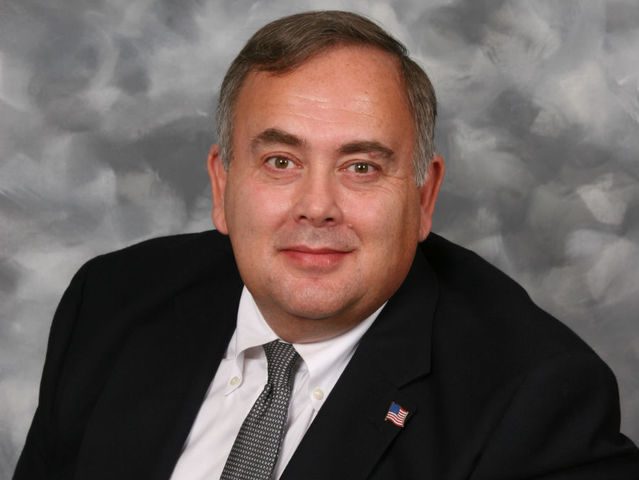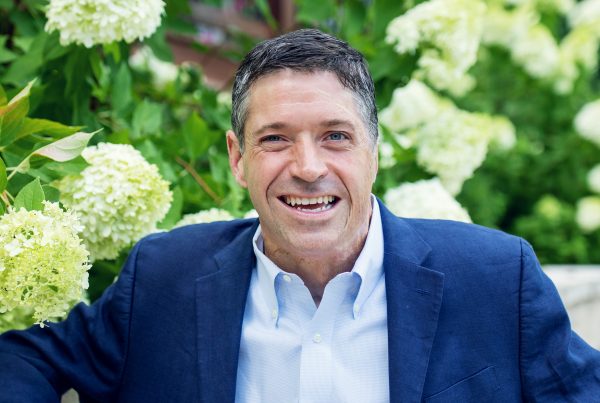Delray budget woes
Don Cooper was frustrated, and rightly so.
The Delray Beach city manager (above) had presented the 2017 budget to the city commission. As requested, administrators had gotten the preliminary budget to commissioners weeks earlier than last year, when Cooper was new. As requested, the budget focused on the commission’s goal of improving public safety. As requested, the budget had more money from the community redevelopment agency, thanks to the good relationship between Cooper and CRA Director Jeff Costello.
Commissioners Mitch Katz and Shelly Petrolia, however, weren’t happy. They wanted a lower tax rate. The proposed rate would be a tiny bit lower than last year, but property owners would pay more because of higher values. Petrolia wondered why the rate couldn’t come down one mill—$1 per every $1,000 of assessed value. That would be about 14 percent lower than what Cooper proposed.
This discussion took place last week. The budget year starts Oct. 1. Asking for such a cut now is like getting on a plane for a vacation to New York and asking your travel agent if you instead could visit Chicago.
Cooper acted like a man being pecked to death by ducks. It would cost $8 million, he said, to produce a budget under the “rollback” tax rate—which would mean no increase in bills. That figure also would be close to a one-mill cut. Since police and fire comprise 60 percent of the operating budget, Cooper said, the city could not achieve that lower rate without lowering the levels of public safety service “that you asked me to improve.”
Neither Katz nor Petrolia offered a specific idea. Cooper told me that neither had asked in one-on-one discussions about a one-mill cut or offered any examples of where to cut the budget. They just wanted lower taxes.
You could appreciate Cooper’s frustration and that of all the city’s department heads who had worked on the budget since the commission’s goal-setting session last October. In addition to the police and fire improvements, the budget starts the city on a 12-year program of neighborhood improvements, some of which the city had delayed even before the recession delayed all such work.
Cooper asked, rhetorically, “What have we not done?” He muted his frustration more than Chief Financial Officer Jack Warner, who said Petrolia had “refused to engage.” That prompted Katz to call Warner’s remark an “insult.”
Interestingly, no members of the public expressed similar sentiment. I wanted to ask Katz and Petrolia about why they waited so long to raise this issue. Petrolia actually voted against preliminary approval of the budget. Katz did so reluctantly, after first voting no. A voicemail and email to Petrolia were not returned by deadline for this post. A voicemail to Katz was not returned. If I hear back, I will report their comments.
Delray Beach is a full-service city. Many Palm Beach County cities have a lower municipal tax rate than Delray, but their overall rate is higher because they pay a separate tax to the county for fire-rescue services. A better comparison is to Boynton Beach, another full-service city with roughly the same population. Boynton’s tax rate is nearly $8 per $1,000 of assessed value higher because the city’s tax base is $3.3 billion less than Delray Beach’s.
So Cooper did his homework, but two of his teachers changed the assignment after he had finished. Discussions like this can make Delray Beach a city where talented people don’t want to work. Mayor Cary Glickstein said, “If you ask staff to perform, and they do, then you attack their competency and integrity publicly without have the courtesy to meet with them privately, I think everyone understands their frustration.”
And a note on that
One other point about higher property values and tax bills:
Cities in Florida don’t get the maximum revenue from rising values because the 1992 Save Our Homes amendment caps the annual increase for homesteaded properties at 3 percent or the rate of inflation, whichever is less. In Delray Beach, roughly 25 percent of the citywide tax roll increase is within the CRA, which means that money must be spent within the CRA.
So the increase to the individual homeowner in Delray Beach likely is less than it may appear, as is the increase to the city overall.
City Attorney review
At its Tuesday night workshop meeting, the Delray Beach City Commission decided to rank the applicants for city attorney at the regular meeting on Sept. 27. Nine firms and individuals have applied.
After that, the commission will decide when to schedule interviews. Those could take place at the Oct. 18 commission meeting or at a special meeting. The commission hopes to have a firm or person on the job in November. The city’s five-member legal department has two vacancies.
Visioning with Singer
Here are some added thoughts about Boca Raton City Councilman Scott Singer’s “visioning session” Monday night on the Wildflower property and Silver Palm Park.
Singer compares the combined sites—on either side of the Palmetto Park Road Bridge—to Sullivan Park in Deerfield Beach, which also is on the Intracoastal Waterway, just north of the Hillsboro Boulevard Bridge. The comparison, though, may be flawed.
Boca Raton’s only public boat ramp is at Silver Palm Park. Deerfield Beach’s boat launch is not at Sullivan Park. It’s at Pioneer Park, roughly two miles away. The Deerfield Beach Community Redevelopment Agency did buy a 0.67-acre parcel next to Sullivan Park in 2011 as part of the park’s expansion, but that purchase was for parking, and everyone understood the use. The cost was $2.2 million. The estimated cost for upgrades to the park is $4 million, according to city documents.
Though Singer’s session has excited opponents of Boca Raton leasing the Wildflower property for a restaurant, that excitement may be premature.
Derek Vander Ploeg, one of the architects who will participate in Monday’s session, told me this week that at the session’s organizational meetings there was support for an approach that incorporated a restaurant into a plan for the two sites that enhanced overall public access. “Those two issues,” Vander Ploeg said, “are not mutually exclusive.” Such an approach could “free Hillstone to do something with parking.” Hillstone Restaurant Group has been negotiating with the city over a lease of the Wildflower property.
An even more interesting option, Vander Ploeg said, would be to shift the boat launch from Silver Palm Park to the north end of Rutherford Park, a larger site.
Of course, if the deceptive November referendum seeking to block a restaurant—without saying so—passes, some of those creative ideas Monday’s session might produce could be meaningless. But if the discussion makes the revenue-producing restaurant option for the Wildflower site even more beneficial and the referendum fails, Singer will have done Boca Raton a service.
Reminder
In our conversation, Vander Ploeg agreed that Boca Raton didn’t spend $7.5 million in 2009 to buy the Wildflower site so it could become a little-used park.
“(Then-Mayor Susan) Whelchel made clear at the time that the land was to bring money to the city.” Why else spend so much for barely two acres? If Monday’s session begins with the premise that the property was to be a park, anything coming out of the session will not be credible.
Docking ban
Speaking of the Wildflower, a social media kerfuffle broke out recently when Hillstone announced that the company no longer would allow boaters to dock at the Houston’s restaurant it owns on the Intracoastal Waterway in Pompano Beach.
The social media takeaway was that Hillstone’s action would undercut the idea of having docks at the Wildflower. In fact, Hillstone General Counsel Glenn Viers many months ago said the company would not include docks in its site plan. Hillstone’s consultant said docks would be problematic because of currents at the site and issues raised by the Army Corps of Engineers. Viers also said boats would block diners’ views.
Viers has said, however, that if the city wishes to build a dock on what would be a public walkway, the company would not object. So the decision in Pompano Beach has no bearing on Boca Raton.
New police and fire board member
At its Tuesday night meeting, the Boca Raton City Council appointed Michael Indiviglio to the Police and Firefighters Retirement System board. The two other applicants included former Delray Beach City Commissioner Adam Frankel, who had served on that city’s fire/police pension board. Frankel had asked the council to waive the residency requirement so he could serve on the board. The council declined to do so.
City vs. Beach & Park District
For about an hour Tuesday night, all was well between the city council and the Greater Boca Raton Beach & Park District
The district wanted approval for a dramatic makeover of the popular Swim and Racquet Center south of Town Center Mall. Two new buildings would replace the existing one, and the tennis pro shop would be expanded. The council gave near-unanimous agreement to all three ordinances that apply to the project. “Go forth and build,” Mayor Susan Haynie said. Harmony.
Then council members went back to discussing the long-delayed meeting between themselves and the district board members. Maybe January? October? Like the larger dispute, there’s no agreement yet.
Mosque as polling place
The manufactured controversy over using the Islamic Center of Boca Raton as a polling place continues in ugly fashion.
Three weeks ago, an email accused Councilman Jeremy Rodgers of “joining with these slimy people to promote this terrorist tinged mosque.” The email asked why Mayor Susan Hayne and other council members had not “spoken out to condemn these actions of Jeremy Rodgers?” Easy. There’s nothing to condemn.
What the email mischaracterizes as a “super secret, hush-hiush (sic)” meeting at the Islamic Center took place after Supervisor of Elections Susan Bucher rescinded her decision to use the mosque for the Aug. 30 primary. Her office had received complaints and one possible threat. The decision upset officials of the mosque, among them Islamic Center President Bassem Alhalabi, who teaches at Florida Atlantic University. They wanted to talk to Bucher.
Rodgers told me that he attended the meeting “at the request of a friend who attends the mosque.” Though Bucher, not the council, chooses polling places, the issue had become one of community interest. Rabbis and other clergy had criticized Bucher for caving to the criticism. A wide range of people attended. There was nothing “nefarious,” to use the emailer’s term.
The email again referenced unsupported rumors linking the mosque and Alhalabi to Islamic extremism. When those rumors arose five years ago, Alhalabi’s students—of all faiths—defended him.
With the recent attacks on a St. Lucie County mosque that the man who carried out the Orlando nightclub attack attended, we have seen how rumors can incite violence. Fortunately, there has been none at the Islamic Center of Boca Raton. As for Rodgers, he was doing his job. The only condemnation should be of those behind the email.
Correction
In Tuesday’s post, I referred to Robert Eisen as a land-use lawyer. As his business card states, Eisen works in the legal department of Investments Limited. He’s not a practicing lawyer.








